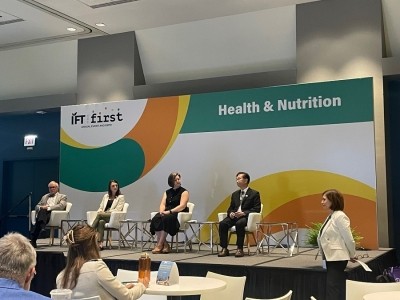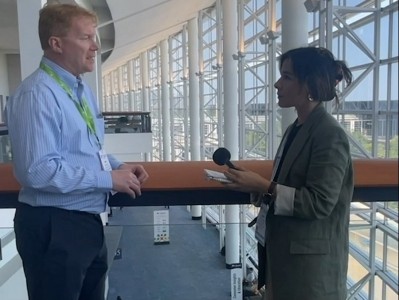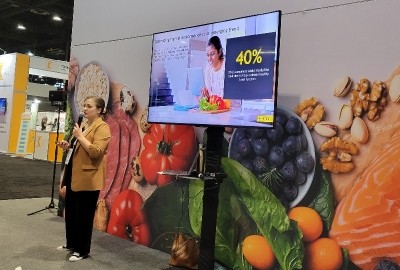IFT First
IFT FIRST: Uniting the food system through food science and nutrition
“Food science brings the food system together connecting both upstream and downstream. And as that middle sector with food science, I get to advocate for our members and elevate science-based policy,” Rosales explained to FoodNavigator-USA.
The three-day conference and trade show explored various ways nutrition and food sciences can address systemic food issues surrounding malnutrition, weight loss management and feeding an exponentially growing global population—all requiring initiatives from every level across the value chain.
“If we learned anything in the past two years,” Rosales explained, “it’s that no one group can do any of these things alone…for a more sustainable world.”
“We can’t get there as just a food science organization and governments can’t get there as just governments, we really have to have a whole society approach,” she added.
Revisions to the Dietary Guidelines in the upcoming 2023 Farm Bill give further indication towards the priorities of the food system surrounding food equity and defining nutrient dense foods, particularly for expecting mothers and children. While the guidelines will be catered towards product developers and government and NGO-funded food programs versus individual consumers, Rosales says these recommendations are still essential in contributing towards healthy dietary patterns.
As these initiatives translate onto food labels during the five-year process, IFT’s Scientific Advisory Committee dedicates itself to presenting scientific evidence along the way “to continuously bring forward food science, resources, evidence etc., to make sure that those are part of the evidence analysis that’s happening for that scientific report that then gets turned into the US Dietary Guidelines,” Rosales emphasized.
“We’re providing science from the food science perspective so that voice is elevated because we want to make sure that we’re not having unintended consequences by choosing certain regulations or policies in certain ways…Whether it’s dietary guidelines, labeling laws and beyond, we really look to participate in the process and make sure we’re sharing the science and evidence base that we have available,” she added.























